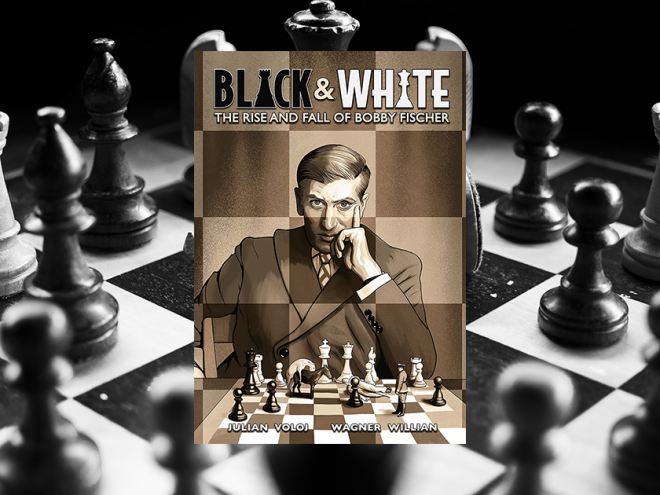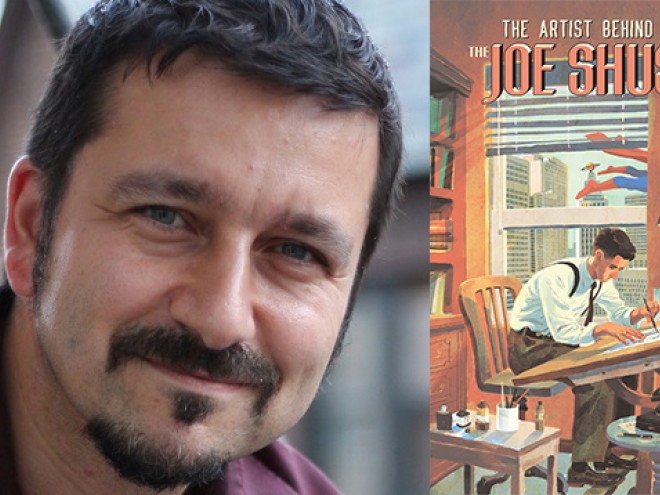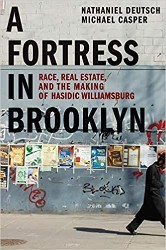Like a black-and-white chessboard, the life of grandmaster Bobby Fischer (1943 – 2008) was full of contrast. In their graphic biography of a troubled genius, Julian Voloj and Wagner Willian condense the incredible accomplishments and alarming choices of this man and the myths surrounding him.
As a young Jewish boy raised in Brooklyn by a strong single mother, Fischer is drawn to the intellectual calculations of a game that seems to offer him a measure of control. Yet his acute sensitivities and social problems still manifest themselves, and are met by inadequate responses from adults. When he is in elementary school, Bobby is invited to join the prestigious Brooklyn Chess Club, whose other members are adults.
Voloj imagines Bobby’s fascination with the pawn, which has the unique ability to transform itself into a different piece, even a queen. In a series of images, Willian juxtaposes the rational outline of potential chess moves with Bobby’s outburst of tears when he loses a game. Each sentence of the text is relatively terse, but advances a comprehensive analysis of Fischer’s tumultuous life. As he grows older, the stakes for winning, both professionally and emotionally, become more intense.
Given the chaos of his later life, the book’s presentation of how adults fail Fischer as a child is especially poignant. His mentors in the world of chess are focused exclusively on seeing him win championships. When his mother brings her legitimate concerns about Bobby to a psychiatrist at the Brooklyn Jewish Hospital, this supposed professional is quite patronizing, reassuring her that “it’s not unusual that kids get obsessed with a game,” and advising her to encourage Bobby to do his homework. The overwhelmingly male world of chess is not the nurturing environment his beleaguered mother tries to provide.
Mental illness will eventually dominate his life. At first, he perceives events as brief, hallucinatory images unconnected to one another: the Rosenberg trial, communism, Israel. While the book’s minimalist approach sometimes addresses these controversies without sufficient context, the author includes brief footnotes to compensate. There are a few inaccuracies. For example, the Vietnam War, as it involved the US, occurred later than the Rosenberg trial; and, by 1972, Idlewild Airport had already been renamed for President Kennedy. But these minor flaws are offset by a fast-moving description of Fischer’s participation in matches and his erratic demands for control. Using black, white, and gray sequences of squares, the author and illustrator document Fischer’s forfeiture of titles when conditions do not suit him, as well as his dangerous provocations when dealing with the Soviet Union.
The specific nature of Fischer’s psychiatric diagnosis remains unclear, but the facts about this Jewish man’s embrace of antisemitic beliefs and bizarre conspiracy theories are clear. Paradoxically, someone who seemed likely to become a Jewish hero transforms himself into an emblem of shame. Willian departs from his previous style as he chronicles Fischer’s descent into hatred. Cartoonish figures drawn from both Nazi propaganda and mid-twentieth-century animation cover the pages, before they are replaced by a sad denouement: on the phone, Bobby’s mother promises him that she will always love him.
The tragedy of Bobby Fischer emerges in Black & White, without simplistic explanations or apologies. This book is a vivid acknowledgement that aspects of his fragmented life can never be fully understood.
Emily Schneider writes about literature, feminism, and culture for Tablet, The Forward, The Horn Book, and other publications, and writes about children’s books on her blog. She has a Ph.D. in Romance Languages and Literatures.





